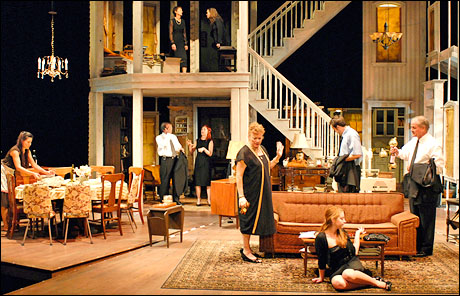
Lynn Nottage grew up in Brooklyn, recently won the Pulitzer Prize for her play "Ruined," and is insanely articulate. No, really. Like you wouldn't believe how smart and funny. I suppose I shouldn't be surprised, since "Intimate Apparel" is one of my top three favorite plays from the semester, but I'm rather blown away.
For instance, here's a link to an interview she did before "Ruined" even had a set title, in which she tells vomit-on-the-bus stories and talks about her experiences in Africa, doing research for the play. (She also talks a bit about how she started writing "Intimate Apparel," and the impetus for that play makes me look at it in an entirely new light.)
http://www.tcg.org/publications/at/Oct05/nottage.cfm
I want to take her out for a cup of coffee, get her talking, and turn on a tape recorder and soak up the intelligence.
There's this too, from the current production's website:
http://www.mtc-nyc.org/current-season/ruined/video1.htm
For the first half, her voice runs over video from the play, which is marvelous to see - I just wish I could hear some of the dialogue! The second half is my favorite part, though - it's a more straightforward interview with her. And one of the things she talks about hearkens right back to the beginning concept of "Ruined" as a version of "Mother Courage." But what Nottage says is that in fact, distance is exactly what we DON'T need for this subject, that we have to confront it, that we can't allow ourselves the luxury of stepping back.
She goes into more depth here in this video, which also features the actress who plays Mama Nadi:
It's just fascinating to listen to her talk. I have a feeling I could sit and listen for a long time.


